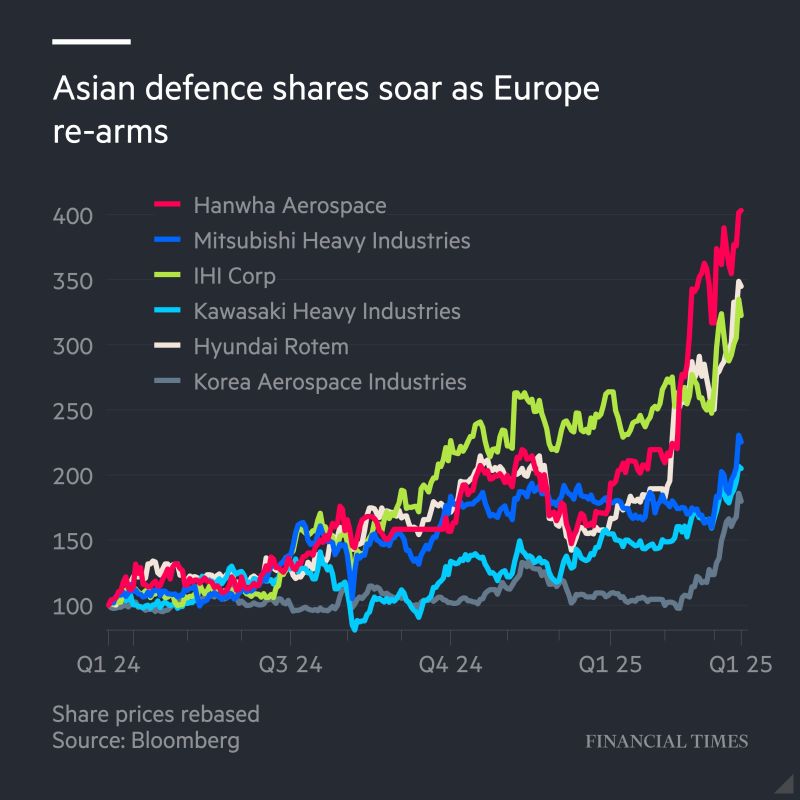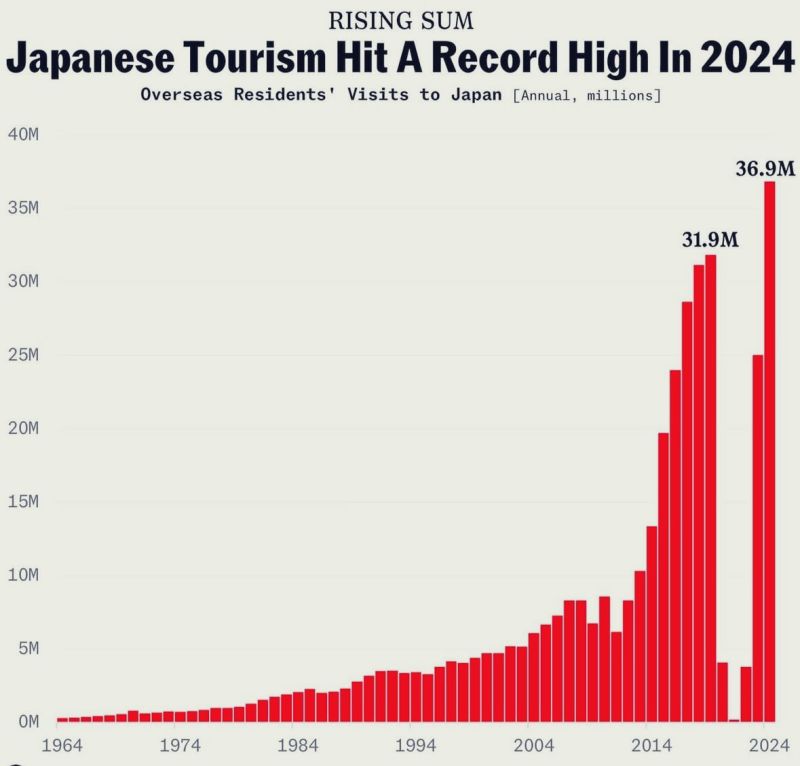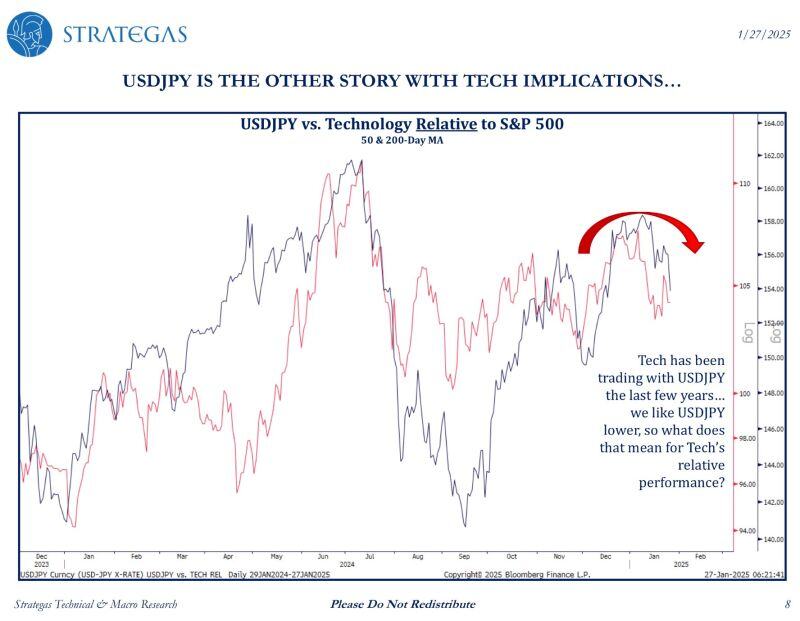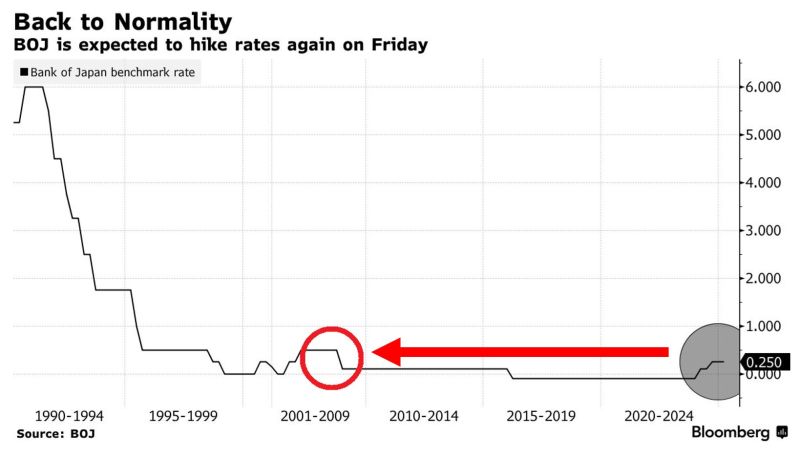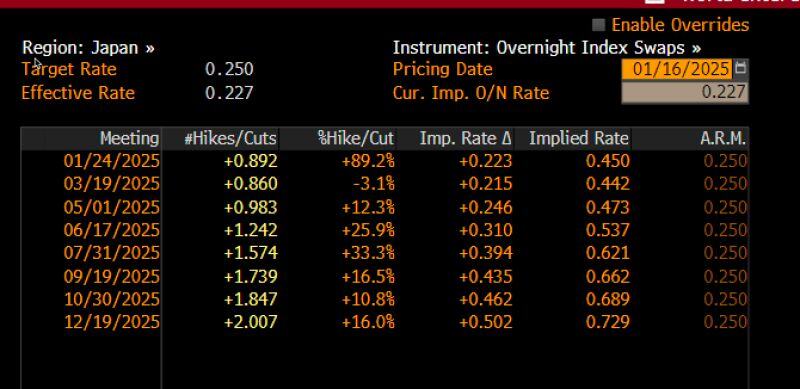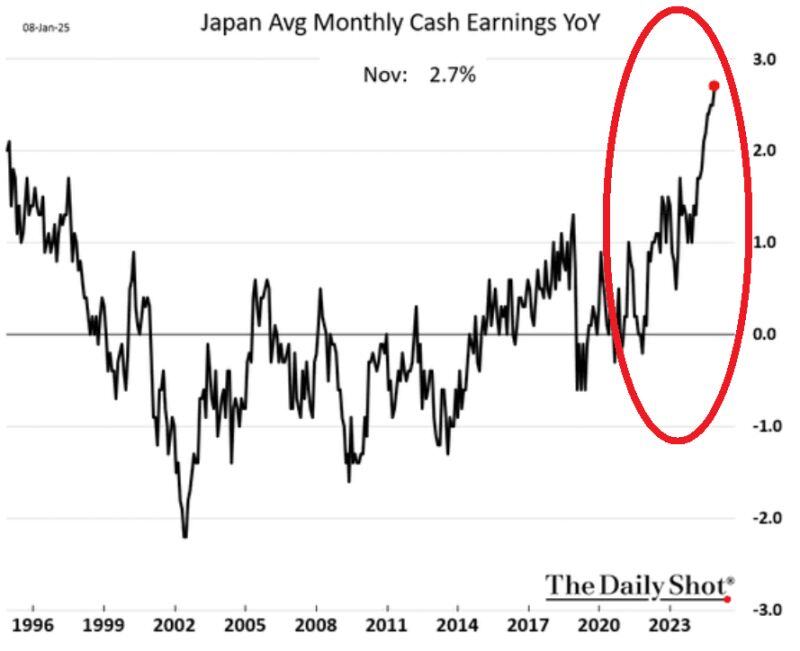Straight from the Desk
Syz the moment
Live feeds, charts, breaking stories, all day long.
- All
- equities
- United States
- Macroeconomics
- Food for Thoughts
- markets
- Central banks
- Fixed Income
- bitcoin
- Asia
- europe
- investing
- geopolitics
- gold
- technical analysis
- Commodities
- Crypto
- AI
- Technology
- nvidia
- ETF
- earnings
- Forex
- china
- Real Estate
- oil
- banking
- Volatility
- energy
- magnificent-7
- apple
- Alternatives
- emerging-markets
- switzerland
- tesla
- United Kingdom
- Middle East
- assetmanagement
- amazon
- microsoft
- russia
- ethereum
- ESG
- meta
- Industrial-production
- bankruptcy
- Healthcare
- Turkey
- Global Markets Outlook
- africa
- Market Outlook
- brics
- performance
Investors expect European countries to purchase more military equipment from Asia after Donald Trump threatened to withdraw the US’s security umbrella.
Link >>> on.ft.com/4iC5Fby Source: FT, Bloomberg
Japan 40Y bond yield hits highest in history.
Eventually markets will remember that Japan has to roll over the world's biggest debt load ever assembled. Source: Bloomberg, www.zerohedge.com
So many tourists flying to Japan
(The weak yen helps). It is an extraordinary country to visit by the way. Source: The long view on X
Is it DeepSeek or $USDJPY?
… a reminder that Tech’s relative performance peaked all the way back in July when Yen first strengthened. USDJPY < 155 today is important - perhaps more so than the unknowable impact of China AI Model. @StrategasRP
‼️The Bank of Japan is set to HIKE rates again on Friday:
The market is pricing a 90% chance that the BoJ will raise rates by 0.25% to 0.50% on Friday, the highest in 16 years. That would be the 3rd rate hike in less than 12 months, after 17 years without an increase. Source: The Kobeissi Letter, Bloomberg
90% chance BOJ hikes next week.
Source: Michael J. Kramer @MichaelMOTTCM on X, Bloomberg
⚠️Bank of Japan is getting closer to deliver another rate hike:
Inflation has picked up while wages have jumped to the highest level in at least 3 DECADES. The market is pricing in about a 60% probability of a hike next week, and an 82% chance by March. Remember when in August 2024 the market flash crashed by suddenly waking up to BOJ's rate hikes? This is key to watch. Source: The Kobeissi Letter, The Daily Shot
Investing with intelligence
Our latest research, commentary and market outlooks


